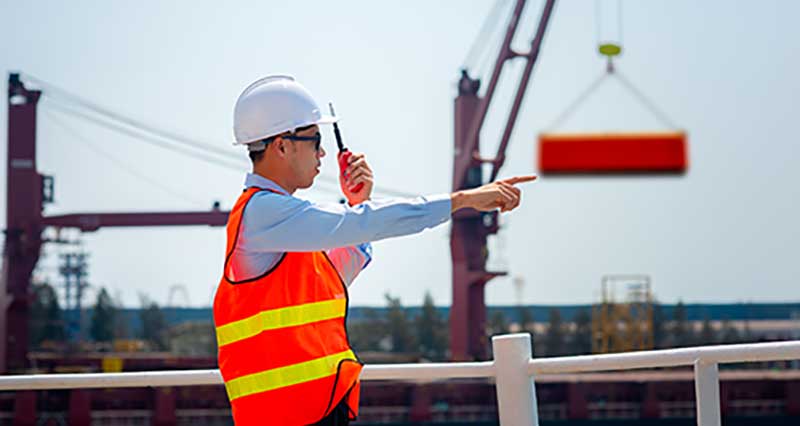The FCA and FOB are common incoterms in international shipping. When referring to these incoterms, you will find differences between them.
Whether you are the importer or the exporter, knowing these variations helps you make an ideal choice. And it can help divide the responsibility and risk when the cargo is damaged.
So what do the FCA and FOB offer? Let us compare their difference.
What is the FCA?
FCA stands for Free Carrier, and it is one of the international incoterms published by ICC.
Under the FCA incoterm, the seller just is responsible for shipping cargo to the named place (his factory or the other place at the origin) by the buyer and clearing the cargo customs. It needs to be stated that if the goods are not handed over at the factory, the seller will not be responsible for unloading the goods after they have delivered the goods to the designated place. The risks are transferred once the buyer receives the cargo.
And if the contract used this incoterm, the buyer’s risk is bigger than the seller’s. The buyer needs to bear deliver cargo from the named place to the destination safely. And the buyer has responsible pay all the costs, not including customs clearance costs.

What is the FOB?
The full form of FOB is the” Free On Board “. With FOB, you will be allowed ship cargo from one country to another country by inland waterway or ocean shipping.
Under this incoterm, the seller has finished the transportation once the cargo is loaded on the vessel. And the seller needs to offer the customs clearance documents and pay for all the customs costs.
The buyer is responsible to ship cargo from the boat to the destination and bears all the risk during this time.
FCL means that the amount of cargo can occupy a whole container or a container can only hold the goods of one client. So clients need to pay for one container.
What is the difference between them?
There are differences between FCA and FOB, there list some examples to help understand them.
1. FCA suits all shipping modes, including aircraft, shipping vessels, and road freight. But the FOB serves the cargo delivered by the shipping vessels or the inland water.
2. The risk transfer.
Accurate and clear classification of risks is important for the entire transportation process. It decided whose responsibility when the cargo is damaged, who pays for the shipping cost, who purchases the cargo insurance, and so on.
The risk is transferred to the buyer when the cargo is delivered to the buyer at the named load place when using FCA. The risk is transferred to the buyer once the cargo loads the vessel using the FOB.
3. Different delivery places.
For FCA goods are delivered to the carrier arranged by the buyer and the named place by the buyer. The agreed place may be the seller’s factory or the other place.
For FOB, the seller needs to transport and placed the goods on board the vessel designed by the buyer. The buyer is responsible for delivering the cargo from the boat to his warehouse.
4. Payment.
For FCA, the seller needs to bear the customs cost or the loading cost from the factory to the named place. The other cost will be paid by the buyer. For instance, all the costs related to the freight, and unloading of the cargo cost at the origin port. And the storage fee of the goods, the cost of finding the freight forwarder, etc.
With the FOB, the buyer has the responsibility to pay the cost of shipping from the loading vessel to his warehouse. And the other cost will be paid by the seller, including customs costs and local fees at the origin.
5. Insurance.
With FCA, the buyer has responsible for purchasing the cargo insurance and paying for the insurance cost. Under the FOB term, the buyer can choose to be responsible for the cargo insurance. However, the buyer’s insurance is only valid during the period from the time the goods are loaded to the buyer’s warehouse, and the safety of the goods cannot be guaranteed during the period from the seller’s warehouse to the ship at the port of shipment.
Therefore, the seller can apply for additional insurance during this period by himself, and purchase insurance for the cargo with himself as the insured or ask the buyer to apply for insurance during this period when applying for insurance, and the cost will be borne by the seller.
The above-mentioned is the difference between them, let us look at the same between them.
Whether the FCA or the FOB, the seller must clear their cargo through customs smoothly and pay all expenses during this period including any duty fees and the taxes connected to the clearance procedures.
And the seller needs to offer all the proper customs documents related to the cargo. These documents include the commercial invoice, certificate of origin, etc. The various country has different customs documents. Whatever documentation is required, should be provided by the seller.
If the cargo is detained by the customs office due to the lack of sufficient paperwork or the wrong cargo information. The seller and buyer need to determine who pays for the responsible loss.
How can Airsupply help you?
In addition to the FCA and FOB, there are various international Incoterms. Buyers and sellers may have some headaches distinguishing between different international terms, and they are not sure about the transfer of risk and the responsible party. Airsupply can help you.
Our experts have more than 10+ years of shipping experience. We can offer the best FCA and FOB rates. And help to handle the complex procedure related to the cargo. Contact us at the bottom below.




